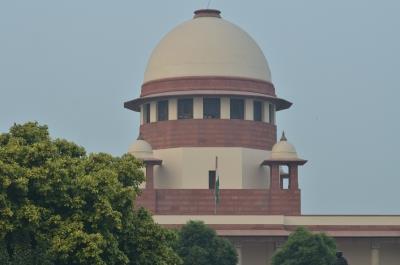
'Loss Of Self-Control': SC Modifies Conviction, Sentence Of Man Who Killed Brother
New Delhi, Aug 2 (IANS) The Supreme Court on Tuesday modified the conviction and sentence of a man who killed his brother, saying the acts of provocation on the basis of which the accused, serving life imprisonment, committed the offence were both sudden and grave and that there was loss of self-control.
A bench of Justices Sanjiv Khanna and Bela M. Trivedi said: 'There was sudden loss of self-control on account of a 'slow burn' reaction followed by the final and immediate provocation. There was temporary loss of self-control as the appellant had tried to kill himself by holding live electrical wires.
'Therefore, we hold that the acts of provocation on the basis of which the appellant caused the death of his brother were both sudden and grave and that there was loss of self-control.'
The top court, applying the provocation exception, converted the conviction under murder charges to Part 1 of Indian Penal Code's Section 304 which deals with punishment for culpable homicide not amounting to murder.
The top court noted that the accused's brother was an alcoholic, and constantly abused the appellant and also threatened him. And, on the night of the occurrence, the deceased had consumed alcohol and had told the appellant to leave the house and if not, he would kill the appellant. After committing the offence, the appellant on September 26, 2011 had gone to the police station and confessed to the crime.
The bench said: 'Gravity of provocation turns upon the whole of the victim's abusive behaviour towards the accused. Gravity does not hinge upon a single or last act of provocation deemed sufficient by itself to trigger the punitive action. Last provocation has to be considered in light of the previous provocative acts or words, serious enough to cause the accused to lose his self-control.'
The top court said the case would fall under Exception 1 to section 300 of the IPC. 'Applying the provocation exception, we would convert the conviction of the appellant from section 302 to Part I of section 304 of the IPC,' said the bench, partly allowing the appeal.
Noting that the appellant, a resident of Chhattisgarh's Durg district, had already undergone imprisonment for over 10 years, it said: 'We are inclined to modify the sentence of imprisonment to the period already undergone. In addition, the appellant would have to pay a fine of Rs 1,000 and in default, will undergo simple imprisonment for a period of six months. On payment of fine or default imprisonment, the appellant is directed to be released forthwith.'
--IANS
ss/vd

Legal Disclaimer:
MENAFN provides the
information “as is” without warranty of any kind. We do not accept
any responsibility or liability for the accuracy, content, images,
videos, licenses, completeness, legality, or reliability of the information
contained in this article. If you have any complaints or copyright
issues related to this article, kindly contact the provider above.


















Comments
No comment